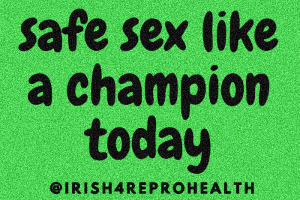During the racial reckoning of 2020 following the murder of George Floyd in Minneapolis, cities around the globe took to the streets to demand justice not only for Mr. Floyd, but rather an end to the systemic injustices that Black and other people of color face in the United States. Among the raised fists and cardboard posters sporting the slogans “Say His Name” or “Hands Up! Don’t Shoot” was another ubiquitous symbol in the call for justice: the flag of Palestine. Seemingly, these two controversies, especially to the general American political consciousness, appear distinct. Protesters with Palestinian regalia may even be seen as hijacking a politically opportune, highly visual political moment and movement to advance a separate cause. History, however, would tell us that this is not the case, but rather a pattern, and even a long-standing partnership in the movement for justice for Black people in America, and justice for Palestinians in the Occupied Territories.
History can partially answer this for us, at least with regards to Black civil rights leaders and historical alignment with Palestinian liberation. Nearly all the great activists and intellectuals of the American Civil Rights movement of the sixties and seventies were aligned on the issue of Palestine. The sixties and seventies were a time of global disruption of colonial legacies of varying levels of intensity from colonial powers. Simultaneously, Black internationalism, an ideology born earlier in the century, began to take root, leading Black leaders to understand the struggles of Black people globally as interconnected and sought to unify Black people under a common aspiration. This, in many cases, meant a larger commitment to decolonization as radical Blacks in the US sought not just for inclusion, but the global deconstruction of white supremacy – and the sordid history of European intervention and invention of the State of Israel in Palestine was not exempt from this analysis. The racialized colonization process sought to bring the West into Palestine, and among those who globalized their understanding of suffering under colonial regimes – the connection was absolutely clear.
Radical organizations like the Black Panther Party wrote in their platforms that they “support the Palestinian’s just struggle for liberation one hundred percent. We will go on doing this, and we would like for all of the progressive people of the world to join in our ranks in order to make a world in which all people can live.” Incorporating this into their platform was not purely symbolic, but followed up with action, with leaders visiting Palestine, and claiming they were “in daily contact with the PLO.” Thinkers like James Baldwin wrote that “the state of Israel was not created for the salvation of the Jews; it was created for the salvation of Western interests… [t]he Palestinians have been paying for the British colonial policy of “divide and rule” and for Europe’s guilty Christian conscience for more than thirty years.” Mandela drew connections to the apartheid system in South Africa and the one in the Occupied Territories, noting that both countries suffer from a legal system that systematically denies rights based on race.
All this to say, there is a long, deep, and important history of leaders for Black liberation not only supporting Palestine but seeing it as intimately tied to their own struggles. The architects of demands for very basic civil rights under an oppressive American system envisioned a larger reality in which the global colonial order that undergirds this oppression is permanently disrupted. Today, these two regimes complement and learn from each other, exemplified by what has been termed the “Deadly Exchange” in which Israeli and US police exchange tactics and materials for racial profiling and violent suppression of protests. However, there is hope in the continuation of solidarity between these two movements today. The Black Lives Matter movement endorsing the Boycott, Divest, and Sanction movement and Black church leaders calling for a ceasefire in Gaza are a continuation of this legacy. The solidarity is reciprocal, with Gaza protesting in solidarity with Black lives in 2020, with George Floyd’s face graffitied on the separation wall signaling the sentiment that the same system that murdered Floyd maintains this wall.
In the spirit of these collective voices, we find echoes of shared struggle and aspirations for a world where equity flourishes. As history marches on, we owe action to the dreams of those who’ve dared to envision a more just society. As Black people, as Americans, we owe it to the architects for equality in this country to show up for Palestine in their moment of need. We must refuse to be enveloped into the American narrative, one that excuses settler-colonialism, apartheid, and turns a blind eye to genocide. We must recognize our place and privilege in the heart of an empire that supports settler colonialism, excuses apartheid, and funds the genocide of our Palestinian siblings. We must recall our history of liberatory politics while simultaneously taking stock of the potentials for liberation that stand in our way of being a truly free people today. History offers a vision of how to respond to this moment and offers a politic that is uniquely focused on interconnected liberation that makes a freer, more equal, and more just world for us all – it is up to us to listen.


